Another month of ministry has come and gone. J Squad spent November in Peru, and Kenosis was sent to Tarma, a small town nestled high in the Andes. We lived and did ministry at a church at the top of Vista Hermosa, a village that stretched up the side of one of the mountains around Tarma.
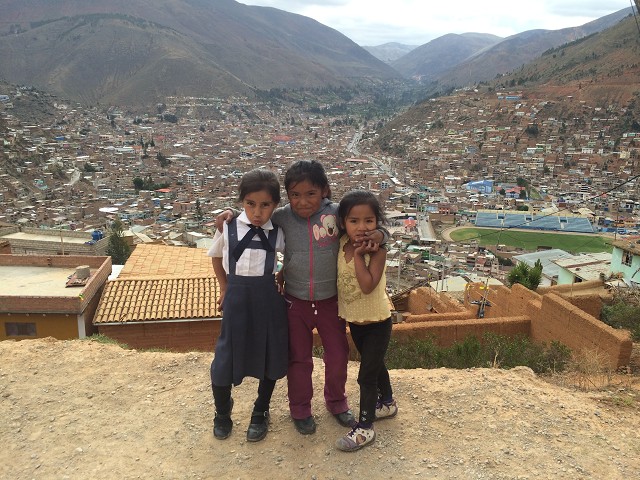
We went into the month knowing, as usual, very, very little about what we’d be doing; our only hint was “children’s ministry.” We arrived on Saturday and were given a vague schedule for our weeks: youth groups on Saturday and Tuesday evenings, prayer and a children’s activity time on Sundays, off days on Mondays and Tuesdays, and our main ministry, helping a feeding program provide lunch and teaching to nearly three hundred children, on Wednesdays, Thursdays and Fridays.
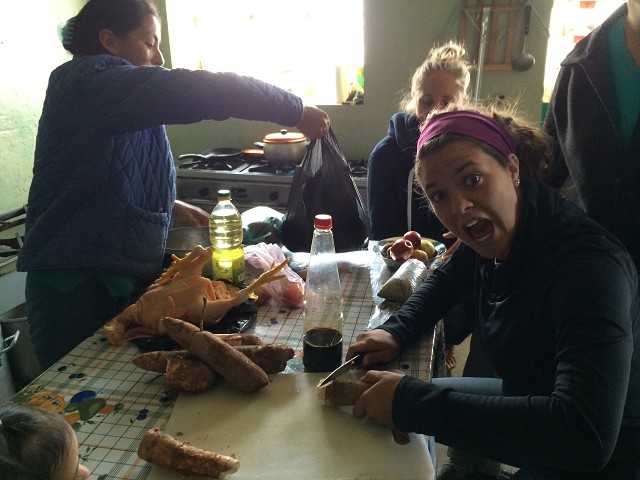
After moving in on Saturday and hanging out for the next three days, we began our first full day of ministry on Wednesday. In the morning, we helped the ladies in the kitchen cook massive tureens of white rice, beef stew and steaming starfruit juice. In the afternoon we were spread out among the various classrooms and instructed to help the teachers serve the meal to the hundreds of students who began to flood in around 1:15.
It was mass chaos.
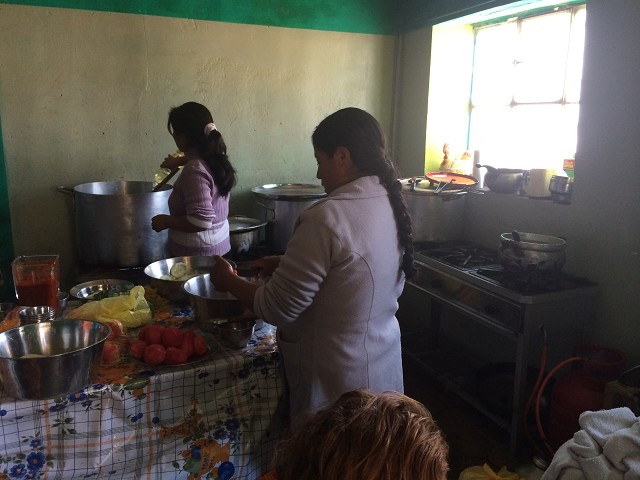
We realized from the moment we walked into the kitchen at nine in the morning that we could easily be more of a hindrance than a help. For one, the ladies there had begun cooking by 6:30 that morning, and the work was already half done. For another, the kitchen felt cramped with only four people in it, and when our whole team had pressed inside, there were closer to twelve. Worst of all, we soon found that everything we did was wrong, from chopping carrots to shredding lettuce. “Make the sauce,” the ladies told us–but what sauce, and with what ingredients, and how? It seemed that the whole operation would happen much faster and easier if we all just hid upstairs in our room until lunch was prepared.
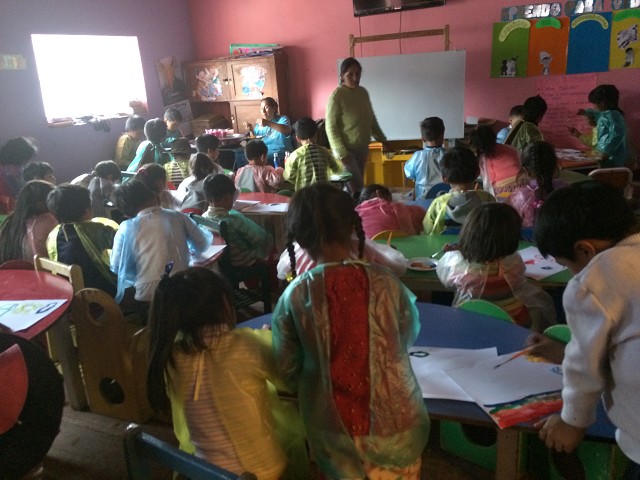
Things did not get better when the children arrived in the afternoon. Apparently there was some system for how the food was distributed, but I couldn’t figure it out. The few instructions I was given were in Spanish, so I didn’t understand, no matter how loudly the teacher I was working with yelled. I raced around with a tray, waiting in lines I was supposed to skip and skipping lines I was supposed to wait in, trying all the time not to drop the food or trip over the many children milling around, shouting “Hermanita!” and pulling on my clothes. I dreaded entering my classroom, for the three- to five-year-olds I was working with lacked any degree of discipline and ran around the room screaming, hitting each other and calling for more juice.
By 3:45, as the kids finally began to depart and I was left alone to sweep the room, I was exhausted, overwhelmed and completely bewildered.
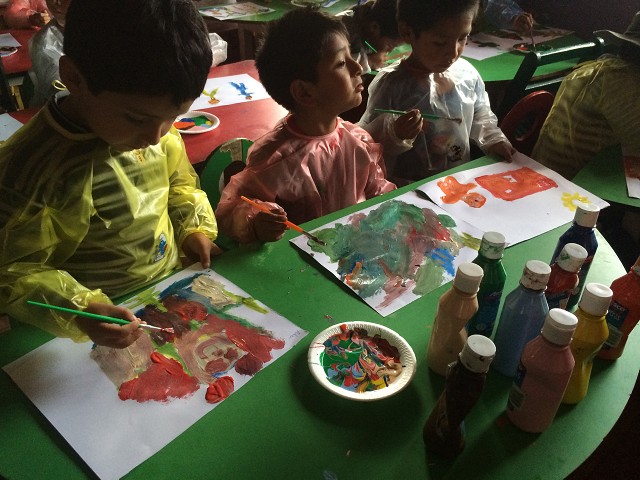
Our ministry left me torn. I came on the World Race as a sort of student missionary. I’m not going around the world to change or fix things; I’m traveling to different ministries to experience the work God is already doing in these countries, and to join in where I can. In Haiti and Bolivia, I was able to learn from some incredible ministries and make a tangible difference at the same time.
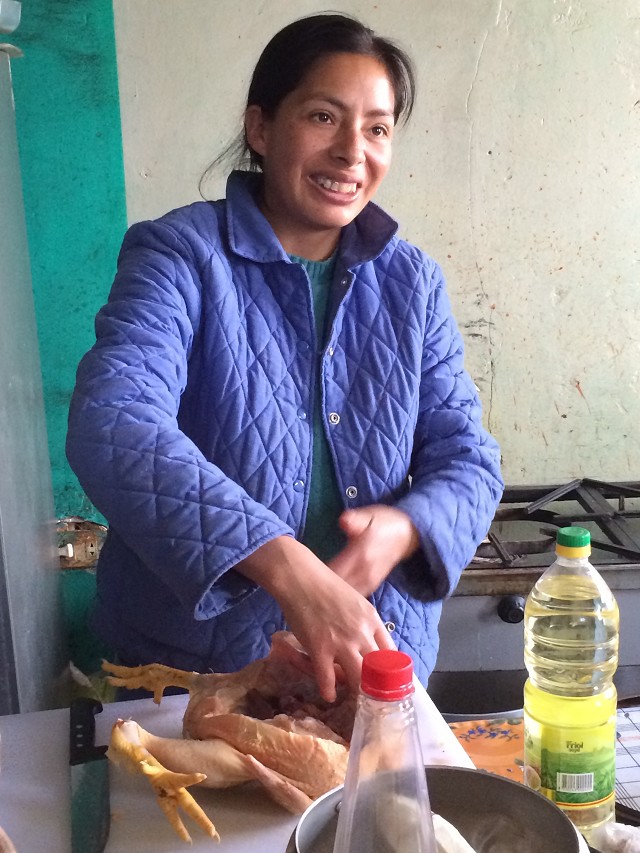
But in Peru, I rapidly realized: this ministry needs help. Badly.
I dearly wanted to help these hardworking, dedicated women streamline the ministry so that they could even more effectively touch the community of Vista Hermosa with the love of Christ. But I didn’t come to change things, and I didn’t feel like that sort of improvement should come from me. Furthermore, the problem was far bigger than me, and I bring no ministry or missionary experience to the table. What could I possibly do that could have any positive impact here? And yet, I certainly didn’t feel that I was learning how to run a good ministry effectively. I could be neither student nor teacher. So why was I even here?
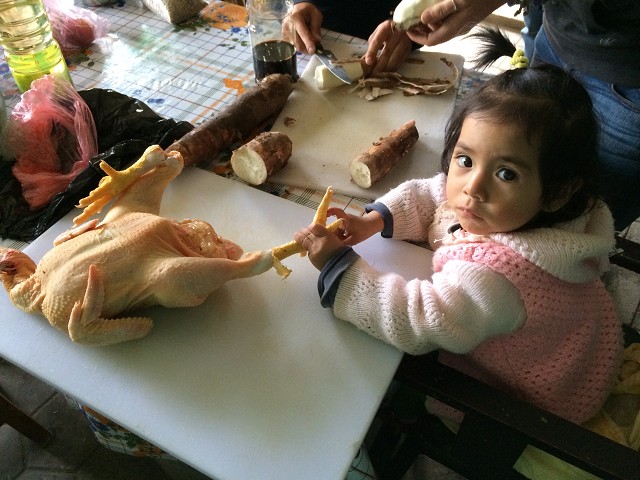
The days wore on, each one longer and more exhausting than the last. On Friday night I collapsed onto my sleeping pad, utterly worn out and drained. Then came four low-key days, all of which felt essentially like off days, for outside of the feeding program, we did very little ministry. On Tuesday evening, I geared up reluctantly for another wearing round of cooking and feeding.
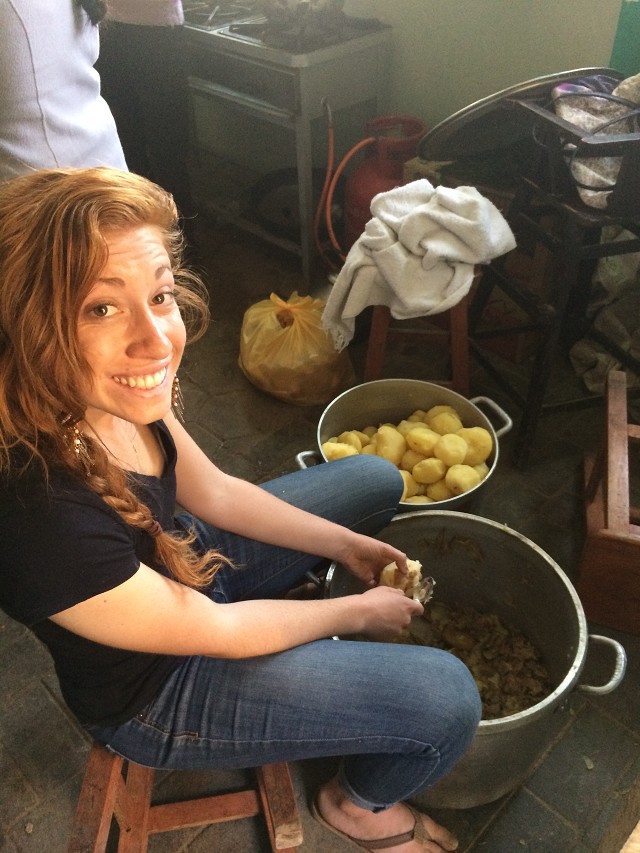
And then I began to ask, where’s God in all this chaotic mess?
Where is He when the Peruvian ladies are grumbling at the fact that we don’t know how to cut up a whole, raw chicken?
Where is He when my ninos are dropping their chicken bones on the floor and yelling at me for second helpings?
Where is He when they’re spinning at dangerous speeds on the rickety merry-go-round at the back of the classroom and my teacher is shouting at the top of her lungs for them to sit down?
Is He even here?
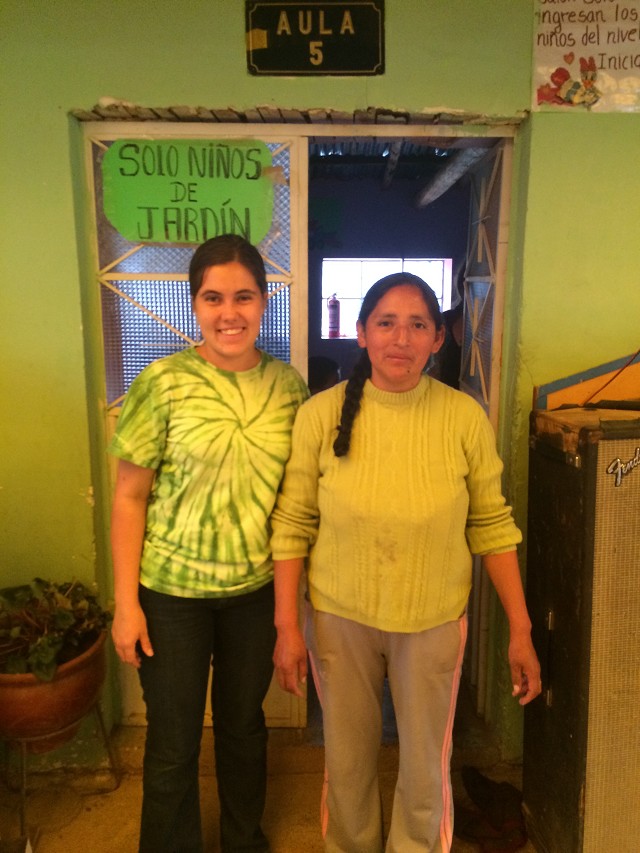
At first, it was very difficult to find God in the mayhem. All I could see was the lack of discipline, the lack of organization, the lack of communication through the language barrier. It was all very discouraging, and some days, as I struggled to decode my teacher’s Spanish instructions to run down to the kitchen for the tenth time to hunt for more spoons, I fought against tears.
But gradually, my vision changed.
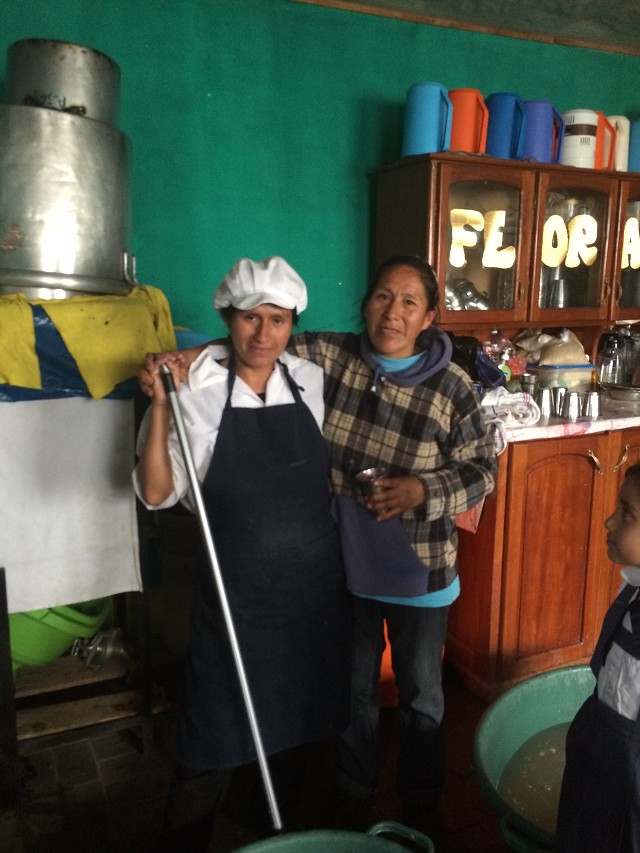
To keep calm in the midst of insanity, I sang hymns and memorized Bible verses under my breath. And I slowly found the presence of God.
This ministry feeds nearly three hundred kids three times each week. They receive a wholesome, homemade meal made entirely with fresh ingredients. Without this sustenance, they would not have enough nourishment to concentrate and learn in school during the week. The breadth and vital impact of this feeding program is incredible, and clear evidence of God’s hand here.
Furthermore, as we learned how Peruvians cook and spent more time with the kitchen ladies, they warmed to us considerably. Rather than feeding students in classrooms, Deborah chose to spend three hours washing dishes in the kitchen each afternoon, asking the ladies about their lives and laughing with them at her struggling attempts at Spanish. By the end of our month, they were excited for us to join them in the morning and enjoyed chatting and hanging out with us as they taught us how Peruvian mothers cook. This fellowship was a gift from God.
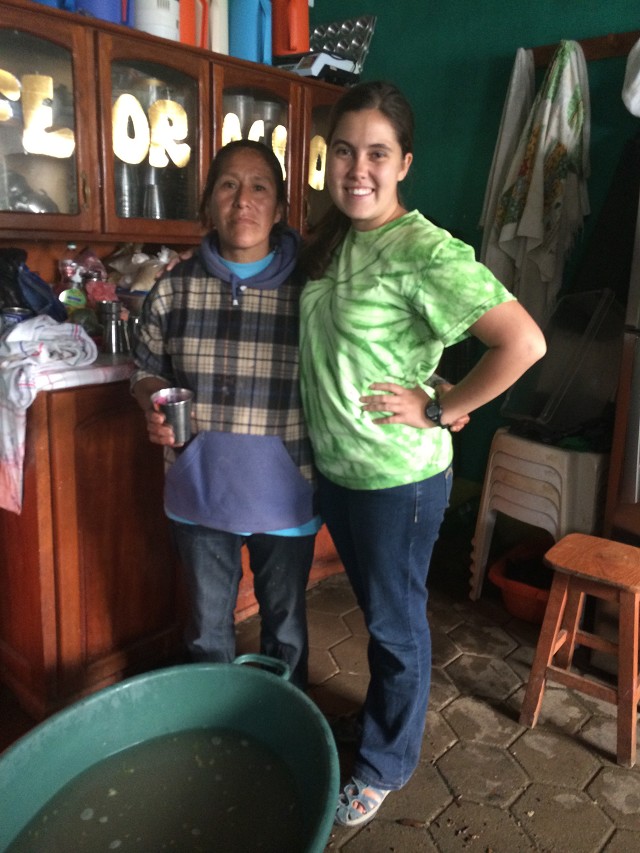
Honestly, for most of November, this month of ministry felt somewhat wasted. By the last week, I still wasn’t sure what the goals of the organization were. The work I was doing felt like it didn’t matter, since other people would be doing it anyway, and probably better, if I weren’t there.
But I have to trust that God had Team Kenosis in Vista Hermosa, Peru for a reason, even if we were’t sure what it was. And in trusting that, I’m learning that I don’t have to know what God’s doing. God is working, even when I can’t see it. I’ll never know the full impact Kenosis had on Vista Hermosa this month, but I don’t have to know for it to be real and true and valuable.
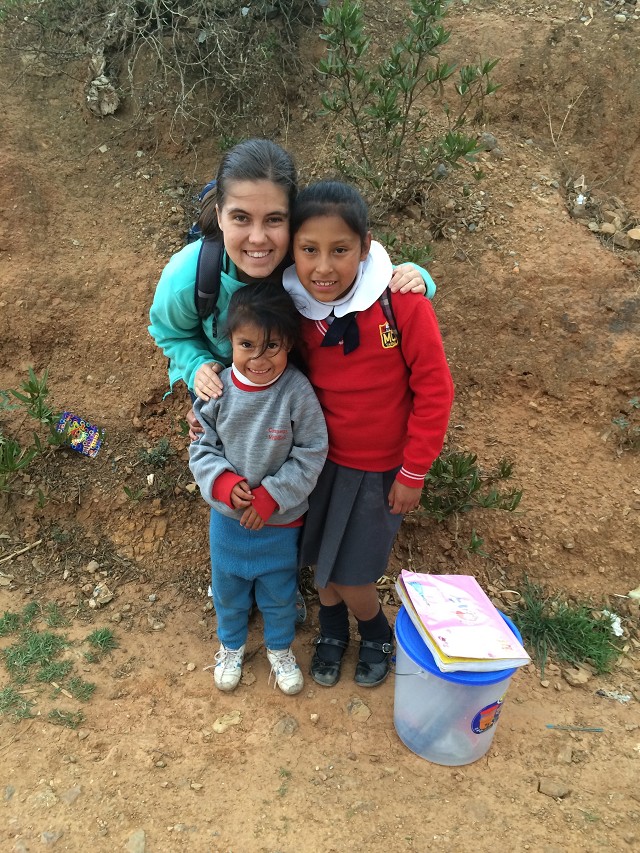
Perhaps we loved kids who don’t get much attention.
Perhaps we gave them an example of Christ’s love and an obedient, teachable spirit.
Perhaps we built relationships with dedicated, hardworking, discouraged women who needed hope and helping hands around.
Perhaps we didn’t streamline the system or expedite the lunch line, but perhaps those women will miss us now that we’ve gone.
Perhaps the most valuable asset we bring to ministry isn’t our (limited) experience as missionaries or the college degrees we’ve earned, but the Spirit of Christ within us.
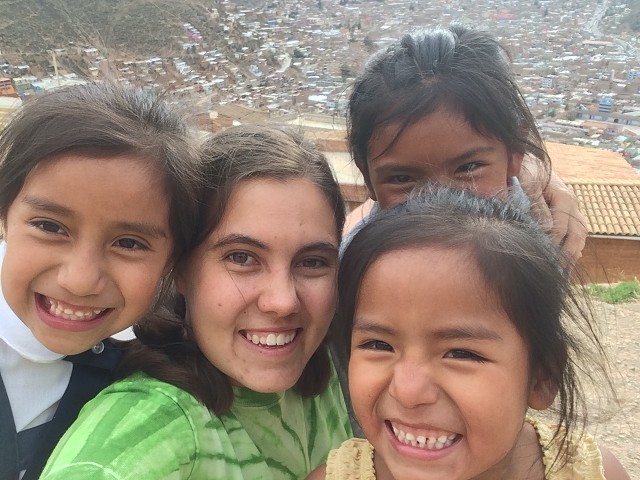
And perhaps Christ doesn’t call me to see and understand everything He’s doing. Perhaps He doesn’t ask me to rejoice primarily in the evidence of His work I see around me. Perhaps He asks me to rejoice in who He is, and to trust that He is at work all around me, when I can see it and when I can’t.
So perhaps this month of ministry was fruitful after all.








